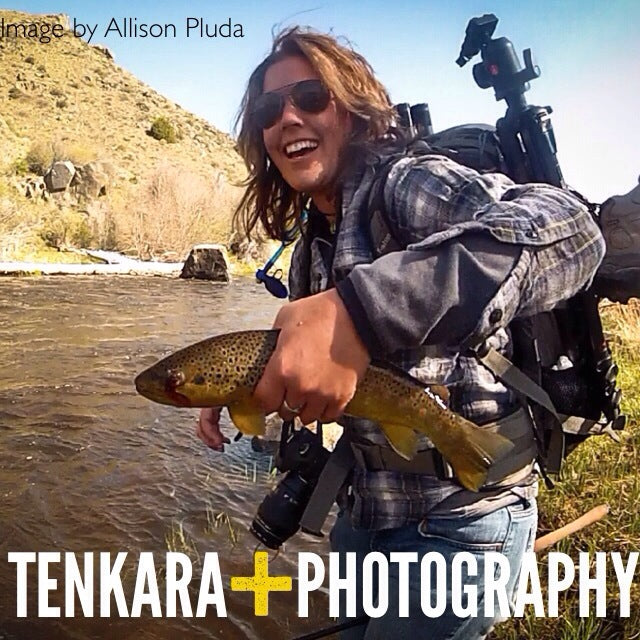One of the best things about keeping fly-fishing simple and that it allows us to combine fishing with a lot of different activities. That’s the idea behind TENKARA+.
Here’s a very nice article written by Allison Pluda for our Tenkara Magazine. It illustrates perfectly that there is indeed no need to choose between fishing and other activities you love. Read on! PDF available here.
NO NEED TO CHOOSE
by Allison Pluda
For me, tenkara is more than just a fishing technique I’m trying for a while. Tenkara is a tool that helps me to become more in tune with all of the goals in my life. It’s part of a lifestyle choice— to strive toward making everything in life as simple as possible, to eliminate unnecessary details internally and externally and to rely more on my senses and technique rather than gear. There is a beauty to tenkara that fits into the flow of the river and is compatible with a slower pace and a simpler style of life.
As a photographer, I tend to have details to fuss over and a heavy backpack full of gear and lenses to pack (why do lens caps always want to lose themselves?) before I even head out into the wilds. I used to feel that I had to choose: fish well, photograph well, or be bogged down trying to do both. When I got my first tenkara rod, I found that finally I didn’t have to choose between photography or fishing; I could do both. A small bag of fishing supplies, a box of flies, and a tenkara rod could all fit into my photo bag without weighing me down with gear to the point where I’m moving slower than my old-timer dog.

I take my modest tenkara set-up with me on backpacking trips and on long hikes to shoot the sunrise or sunset, just in case one of those high alpine lakes I stumble across, deep in the Snowy Range Mountains in Wyoming, is holding some little hungry trout I did not expect. When bushwhacking around branches and brush, between trees and over rocky uneven ground, I can easily collapse the tenkara rod, stow it in the side of my backpack and navigate any tricky terrain without missing a beat and with as much grace as possible while lugging a heavy camera bag. When I find my way back out of the brush (after of course snagging a few branches on my myself) I can be fishing that perfect-looking fishing hole within a minute, and with my camera still hanging around my neck.

To me, that simplicity is priceless and allows me to maintain the ease of mind I am striving for in the woods. Of course it’s still a challenge to maintain peace and grace when a fish I really had my eye on swims away into the deep just as I finally get my line untangled after what seems like an eternity. But that is just one of the many mental challenges that fishing teaches you to overcome.
Tenkara teaches me more than just a different style of fishing. It teaches me to be fluid, to adapt, to really feel the flow of the water, to worry less about the gear and more about my own connection with the river. It teaches me that the more in tune with my surroundings I am, the more I can concentrate and clear my mind of cluttered thoughts, and thus the more fluid my casts will become and the more energy efficient and graceful my fishing will become. Ideally, all of this results in me catching more fish as well as gaining a sense of active meditation guided by the river itself. But even if the end result is just a few nibbles, working on improving my tenkara technique always gives me some type of lesson to take home. These lessons that are the reason tenkara has become more than just fishing for me. It is a lifestyle and a philosophy of mind. Lao Tzu once said, “I have just three things to teach: simplicity, patience, compassion. These three are your greatest
